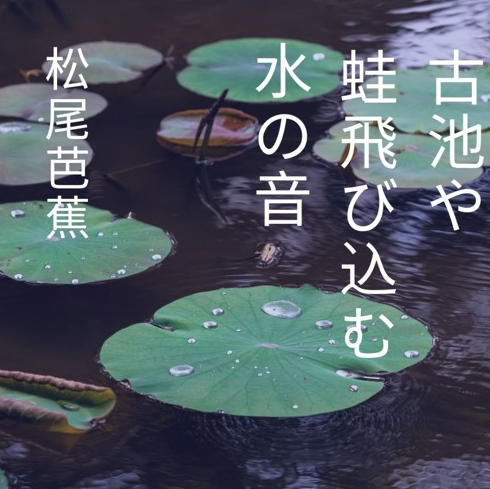What is Haiku? A Complete Guide
Definition and Essence of Haiku
Haiku is a short poetic form originating from Japan, known for its conciseness and its ability to capture moments in nature. Traditional haiku consists of three lines following a 5-7-5 syllable structure, typically containing a seasonal word (kigo) and a cutting word (kireji), used to express insights about momentary experiences in the natural world.
Historical Evolution of Haiku
From Hokku to Haiku
Haiku originally evolved from the opening section "hokku" of a longer poetic form called "renga." During the Edo period (1603-1867), hokku began to appear as independent poems and was elevated through the efforts of Matsuo Bashō (1644-1694).
Officially Named as Haiku
It wasn't until the late 19th century that Masaoka Shiki (1867-1902) officially named this independent short poetic form "haiku," completely separating it from its renga background. Shiki was a key promoter of haiku modernization, advocating for a "sketching from life" style that depicted reality from everyday life.
Structural Characteristics of Haiku
Syllable Structure
Traditional Japanese haiku consists of 17 "on" (sounds) distributed across three lines in a 5-7-5 pattern. It's important to note that the concept of "on" in Japanese is not exactly the same as "syllables" in English or other languages. In English haiku, some poets believe that using 10-14 syllables better matches the rhythmic feel of Japanese haiku.
Cutting Word (Kireji)
The cutting word is an important element in haiku that creates a pause or turning point in the poem, juxtaposing two images or concepts. In English haiku, this effect is usually achieved using dashes, ellipses, or natural breaks.
Seasonal Word (Kigo)
A seasonal word refers to terms in haiku that indicate a specific season, providing a temporal background for the poem. Traditional haiku almost always contains a seasonal word, which is collected in specialized dictionaries called "saijiki."
Themes and Imagery in Haiku
Nature and Seasons
Traditional haiku primarily focuses on the natural world and seasonal changes, capturing moments of beauty or melancholy. Bashō's famous haiku "Old pond, frog jumps in, sound of water" is a typical example.

Expansion to Modern Themes
Over time, especially after the 19th century, the thematic range of haiku expanded beyond nature. Modern haiku (gendai-haiku) can explore various themes, including urban life and social issues.
Famous Haiku Poets and Their Works
Matsuo Bashō
Bashō is considered the most influential haiku poet, elevating haiku from a word game to a sublime art form. His works, such as the "Old pond" haiku, have become classics.
.png)
Yosa Buson
Buson, an 18th-century poet, is known for his painterly style of haiku, with works often displaying rich visual imagery.
.png)
Kobayashi Issa
Issa's haiku is filled with humanistic concern and Buddhist thought. His works are accessible and relatable, making haiku more popular among common people.
.png)
Masaoka Shiki
Shiki was an important promoter of haiku modernization, advocating for a "sketching from life" style that depicted reality from everyday life.
.png)
Global Spread and Development of Haiku
Acceptance in the Western World
In the early 20th century, haiku began to spread in the Western world. British scholar R.H. Blyth's work "Haiku" (1949-1952) introduced haiku to the English-speaking world. Imagist poets like Ezra Pound were influenced by haiku, as seen in works like "In a Station of the Metro."
The apparition of these faces in the crowd:
Petals on a wet, black bough.
Haiku in Various Languages
Haiku has been translated and created globally, from French and Italian to Spanish and many other languages. Haiku in each language has been adjusted according to its linguistic characteristics while maintaining the core spirit of haiku.
Innovation and Transformation in Modern Haiku
Free-form Haiku
In modern haiku creation, some poets no longer strictly adhere to the 5-7-5 syllable structure, focusing more on capturing the spirit and atmosphere of haiku. This trend is particularly evident in Japan's "modern haiku" (gendai-haiku) movement.
.png)
Haiku in the Digital Age
With the rise of social media, haiku has gained new life on platforms like Twitter due to its short form. The formation of digital haiku communities has breathed new vitality into this ancient poetic form.
Haiku-Related Art Forms
Haibun
Haibun is a combination of prose and haiku, usually autobiographical or in the form of travel diaries. Bashō's "Narrow Road to the Deep North" is one of the most famous haibun works.
.png)
Haiga
Haiga is a painting style based on haiku aesthetics, usually containing a haiku. Modern haiga artists combine haiku with art forms such as painting and photography.
.png)
Kuhi (Haiku Stones)
The practice of carving famous haiku onto natural stones to create poetry monuments has a history of hundreds of years. Matsuyama City in Japan has over two hundred such haiku stones.
.png)
How to Appreciate and Create Haiku
Key Points for Appreciating Haiku
Appreciating haiku requires attention to its conciseness, seasonal sense, juxtaposition of images, and unexpressed emotions. Haiku often leaves blank spaces, allowing readers to complete the poetic meaning themselves.
Basic Steps for Creating Haiku
- Observe moments in nature or daily life
- Consider how to express this moment within limited words
- Try to include a seasonal word
- Create contrast or transition
- Revise and refine, ensuring each word has value
Applications of Haiku in Contemporary Culture
Educational Value
Due to its short form and requirements for observational skills, haiku has become an effective tool for language teaching and creative writing.
Mental Health and Mindfulness
Creating haiku requires focus on the present moment, thus being used as part of meditation and mindfulness practices, helping to reduce stress and improve concentration.
Conclusion
Though brief in form, haiku has profound artistic value and cultural influence. From 17th century Japan to various parts of the world today, haiku invites us in its unique way to pause, observe the beauty of the world around us, and discover profundity in simplicity. Whether you are a poet, reader, or nature enthusiast, haiku offers a unique and beneficial way to interact with the world around you.